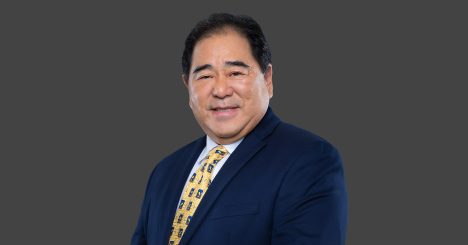Hawai‘i’s Legislature convened on January 18, 2018 with bills similar to those considered over the past few sessions. Focus appears to be on extending and require paid leave, including paid medical leave, family medical leave and for safety needs. There are also bills to increase Hawai‘i’s minimum wage to a living wage, and increase the salary level for employees to be exempt from overtime pay. Bills to amend Hawai‘i’s workers compensation law include a new effort to require employers to pay for medical treatment even if it challenges compensability, and renewed effort to require mutual selection of physicians to conduct independent medical examinations (IME), and a proposal to implement a collaborative process to shorten the time employees are out of work.
Paid sick, family and safety leave will again be our legislature’s focus. Hawai‘i’s lawmakers are encouraged by President Trump’s support for paid leave legislation and Senior White House advisor Ivanka Trump’s effort to build support to for paid family leave. Importantly, President Trump has kept President Obama’s executive order requiring federal contractors to provide up to seven (7) days of paid sick leave per year. Hawai‘i’s lawmakers have consistently supported President Obama’s initiatives and with the current support in Washington we can expect a strong push by Hawai‘i’s legislature to get mandatory paid sick leave benefits for Hawai‘i employees.
Several bills propose to expand Hawai‘i’s family leave law to include coverage for the employee, employee’s siblings and grandchildren, and military leave similar to the federal FMLA. Also introduced have been bills seeking to expand Hawai‘i’s family leave from four (4) to 12 weeks and to have Hawai‘i’s family leave law apply to all employers, instead of only those with more than 100 employees.
This year’s paid leave bills follow prior year proposals, including employer paid leave, leave paid for through employee withholdings or through employer contributions to a state managed paid-leave fund. Reaction to those bills in prior years had been mixed because all Hawai‘i employers provide required workers compensation and temporary disability insurance, both of which provide partial wage replacement for injured employees, and most large employers already offer some form of paid sick leave or paid time off. Legislators in prior years have been careful to avoid significant negative impact paid leave requirements may have on small businesses. Many Hawai‘i laws apply to employers of more than 50 employees, so employers who do not provide paid leave are typically Hawai‘i’s smaller businesses. Because the greatest impact of new paid leave legislation would impact those smaller employers, the key to passing a paid sick leave law requires a system that does not significantly increase the cost of doing business for medium and small businesses.
Hawai‘i’s minimum wage increased to $10.10 on January 1, 2018 and that was Hawai‘i’s last scheduled increase. Hawai‘i’s legislature is, accordingly, considering bills to schedule future minimum wage increases. Current proposals include increasing the minimum wage to $15.00 over one to four years, and there are again bills to establish Hawai‘i’s minimum wage at a “living wage” which proponents claim is currently $22.00.
Other significant bills include Hawai‘i’s effort to increase its $2,000 monthly salary level threshold for employees to be exempt from overtime under Hawai‘i law. That effort mirrors the effort the federal Department of Labor (DOL) is pursuing to increase its $455 weekly salary level for exempt employees. As you recall, President Obama’s regulations to increase that weekly salary level to $913 was blocked by litigation, and the DOL under President Trump initiated its effort to revise the FLSA’s salary level through a July 24, 2017 request for comments. Public input was accepted up to September 25, 2017. The DOL is expected to propose an increase somewhere in the middle between $455 and $913 and that proposal is expected to be released for further comments in the fall.
In the workers compensation arena, bills have again been introduced to require mutual selection of physicians for IME examinations but also to require employers to begin paying for medical treatment even if a claim is contested, and allows the employer’s insurer to recover the payments if a claim is found to be non-compensable.
Other notable bills include bills to allow for recreational use of marijuana and to amend Hawai‘i’s medical marijuana (MM) law to allow for inter-island transportation of MM and to increase the number of plants and quantity of marijuana a MM certificate holder could possess.
We will monitor bills as they move through the hearing process and will report on significant developments. Employers should monitor bills introduced in our 2018 legislative session and to contact your legislator to ensure your concerns are considered.
Paul M. Saito is a partner in Cades Schutte’s Litigation Department. He is currently the editor of Hawai‘i Employment Law Letter, where this article first appeared. In that role, he is also a member of Employers Counsel Network.





